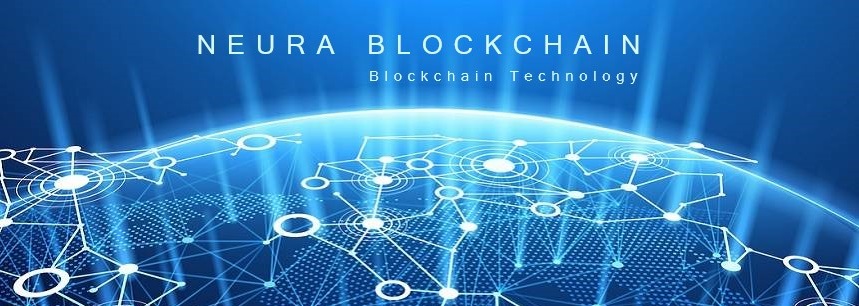Some examples of applications with a strong foundation on blockchain technology...
Blockchain applications are all the rage these days. The literal translation of this anglicized term, Blockchain, is blockchain.
Blockchain is the technology that eliminates the usual intermediaries that exist in classic economic transactions. The process liberalizes controls and it is the users themselves who supervise the exchange.
What is the process that emerges with the blockchain revolution?
For example: An individual wants to send money to another individual, this transaction is represented as a block in the network. This block is then transmitted to all nodes or users in the network and is approved by all users in the same network. This block, finally, is added to the blockchain that exists in that network which provides an immutable and transparent record of the transactions, concluding the process with the arrival of the money to the individual in question, of course, that this is one of the many examples.
Why is blockchain technology generating so much interest?
The possibility of blockchain technology being applied to other aspects beyond the economy has increased the interest in this technological revolution. In addition, the fundamental characteristics of immutability, transparency and de-centralization that the Blockchain provides, give it that character of robustness and security, which makes this new technology more reliable, while calling into question the usual and spurious methods of banking institutions.
At first this process was seen as a threat by the banks. But the commitment to a transformation in the logic of transactions has forced banks to pay more attention to the development of this technology. This is why the usual transaction methods, characterized by strong centralization and the need for the bank to act as an intermediary, are losing interest with the arrival of a technology that will revolutionize the way we know today's economy.
Open and decentralized system
The fact that it is an open and decentralized system where security is a necessity that must take precedence above all else generates an increase in confidence among users and a clear commitment to the use of this method.
Leading companies are starting to use these applications for different utilities; from the consolidation of a fully public, transparent and digitized ledger to the efficient storage of data or the tracking of shipments are just some of the most innovative applications that blockchain provides.
The development of blockchain technology is still to be seen, the main applications that we can observe today are those related mainly to the so-called cryptocurrencies, the proliferation of Bitcoin or Ethereum as alternative payment methods to ordinary money is already a reality. By 2017, it was estimated that virtual money moved more than $100 billion which indicates that economic and financial digitalization is here to stay.
Some examples of applications with great foundation on blockchain technology.
There are many applications that can be given to the blockchain, the possibilities can be endless. Although at present its functionality is highlighted by the use that is made of it for economic transactions, it is true that different institutions or companies find in this applicability some novel ideas that can be practiced in other areas. The following are seven examples of technological applications that are being used from blockchain.
1. Cloud storage
Cloud storage from blockchain, for example, allows the creation of nodes in different geographical locations that are able to withstand the failure of any server. This decentralization of information allows an integration of data that constitutes the overcoming of one of the most challenging challenges of technologies: the longevity of data.
2. Digital identities
In addition to the danger of digital identity theft in recent times, the blockchain provides a single, secure and immutable system that is the optimal solution to the problem of identity theft.
3. Data registration and verification
Another important point is registration and data verification. This process, often subject to hacking, could be decentralized to prevent other interests from interfering, thus establishing a new, more secure registration method for users.
4. Smart contracts
With the emergence of cryptocurrencies, there is also the rise of so-called smart contracts. These agreements can be fulfilled automatically, since they are implemented by means of a computer program and their fulfillment is not subject to interpretation by any of the parties. This reduces time and costs.
5. Supply chains
Blockchain will also be important in logistics management. The interest it poses for supply chains is focused, above all, on the possibility of an improvement in the supervision of food chains or in the tracking of production. This is why countries such as the United Kingdom already use 22% of such applications.
6. Automated security
The same goes for automated security; the incorruptibility of the blockchain allows the information required to be obtained without paying attention to security flaws that can result in data theft. In addition, the surveillance system can be used throughout the day without the possibility of the server going down.
7. Voting system
Finally, in an increasingly digitized world, some nations consider the blockchain as a new way of approaching democracy; obtaining from this application a new framework on which to regulate, for example, the voting system. Although some cybersecurity experts believe that blockchain cannot yet ensure the security of electronic voting, U.S. states such as West Virginia have already implemented this methodology.
(The fundamental characteristics of immutability, transparency and de-centralization that the Blockchain brings, give it that character of robustness and security, which makes this new technology, more reliable, while calling into question, the usual and spurious methods of banking entities)...
Alejandro O. Asharabed Trucido
+54911 5665 6060
Buenos Aires, 2021, 28 de julio


No comments:
Post a Comment